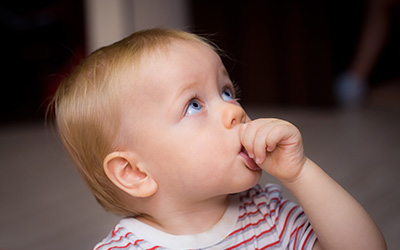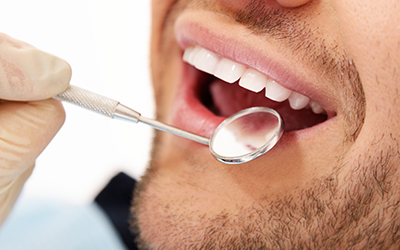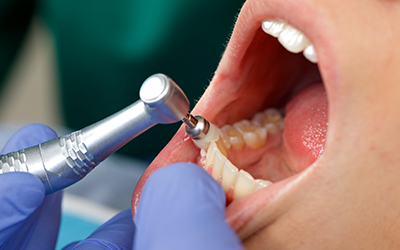Posted on Aug 15, 2016
Pacifiers, Thumb Sucking & Their Impact On Your Child’s Oral Health
A+ A- A Main Content
According to the American Academy of Pediatric Dentistry, most kids will discontinue the use of a pacifier before 4 years of age. Thumb sucking is a harder habit to break and, without intervention, can last for much longer than this. If your child is still using a pacifier or sucking their thumb past the age of 5 are at risk for developing certain dental problems.
Problems Caused By Thumb Sucking & Pacifier Use
Most of the problems caused by pacifiers and thumb sucking can be difficult to assess, so it’s important that their dentist evaluates your child if these habits persist. Below are a few of the common risks associated with pacifiers and thumb-sucking:
- Narrowing of the roof – During childhood, the structures in the mouth are very pliable. If pacifier use or thumb sucking persists for a prolonged period of time, the roof of the child’s mouth can narrow, creating problems for the developing teeth.
- Misalignment of the jaw – There is a wide variety of pacifiers. They come in different sizes and shapes, many of which are unnatural for the shape of the mouth. Over time, these pacifiers can guide the pliable jaws out of their correct position.
- Slanting of the teeth – Developing teeth can begin to slant or protrude outwards because of pacifiers and thumb sucking. This can eventually lead to the need for extensive and pricey orthodontic treatment later on in life.
Tips For Pacifier Use
If you do decide to allow your child to suck on a pacifier, there are things you can do to minimize the risk to your child’s oral health. Below are a few pacifier tips to keep in mind:
- To reduce the risk of choking, make sure you purchase a one-piece pacifier.
- Purchase a pacifier that is orthodontist approved. Orthodontic pacifiers have a different shape than regular pacifiers, making them more natural to the shape of your infant’s mouth. A few of the top orthodontic pacifier brands include Nuby Natural Flex, Avent Orthodontic, and Playtex Ortho-Pro.
- Never dip your child’s pacifier in honey, Tylenol, or other sugary liquids.
- Frequently rinse the pacifier with warm water to prevent germs from building up
How To Help Your Child Kick Their Pacifier or Thumb Sucking Habit
In most cases, your child will give up the habit on his or her own over time. As your baby grows, they will find new ways to entertain themselves and to self-soothe. However, if the sucking habits last beyond age 5, you may need to intervene.
Below are a few tips on how to encourage your child to give up the pacifier or to stop sucking their thumb:
- Use positive reinforcement – Instead of punishing the child for engaging in the behavior, praise them when they choose not to suck.
- Implement a reward system – Kids love sticker charts! Allow him or her to earn a sticker for every hour or day that they don’t use their pacifier or suck their thumb. Have a reward in place for when the sticker chart is full.
- Wrap the thumbs in mittens or band-aids at night – Thumb sucking at night can be a reflex that your child has no control over. To discourage nighttime sucking, use socks, mittens, or bandages on the thumbs.
If your child is using a pacifier or sucking his or her thumb past the age of five, it’s a good idea to bring them to our office for an exam. To make an appointment with Dr. Polson, please contact Meadows Family Dentistry today! Our office is located in Castle Rock, CO.
















 (303) 660-5576
(303) 660-5576 smile@meadowsfamilydentistry.com
smile@meadowsfamilydentistry.com 3740 Dacoro Lane, Suite #115
3740 Dacoro Lane, Suite #115